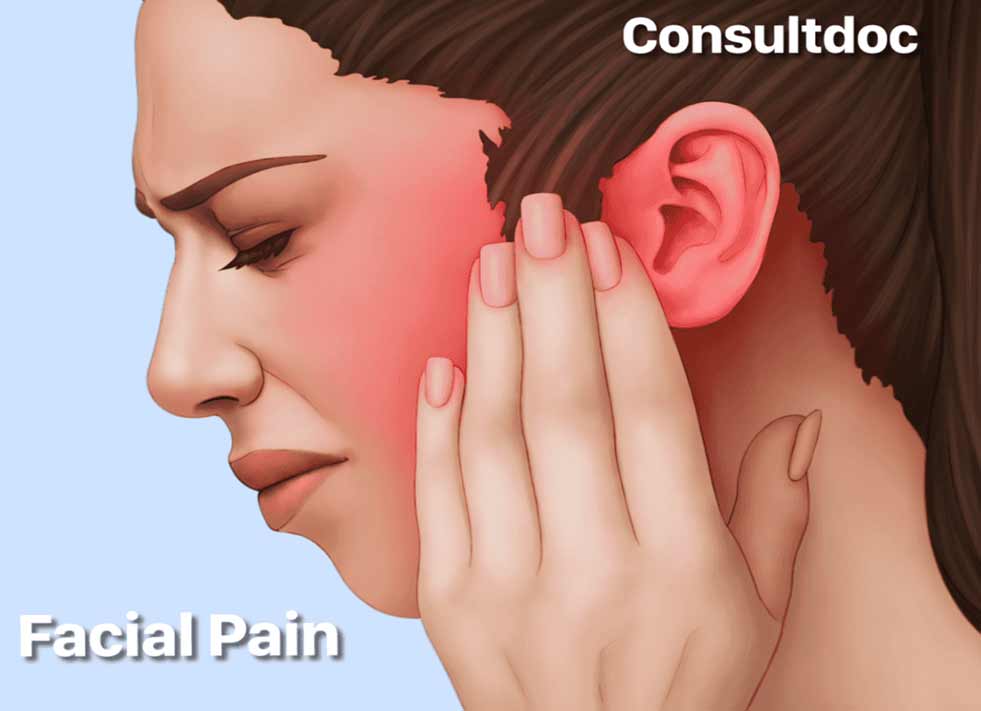Do you have an electric shock-like pain on your face. That comes frequently on and off on one side of your face or sometimes on both? Does it get worse with touching the face, brushing teeth, and chewing?
If so, then you most likely suffer from trigeminal neuralgia. This is a condition that is caused by pressure or damage to. A trigeminal nerve that sends sensations from your face to the brain. It is thought that around 6,000 people in the UK have trigeminal neuralgia. Every year and, it is more common in women aged between 50 and 60 years.
You should book an appointment with a doctor (GP) if you have repeated intermittent pain in your face. The GP will ask you some questions about the problem and also conduct a visual examination during a video consultation to find out what could be the cause of the facial pain.
Treatment Of facial Pain
There is a treatment with a medication called Carbamazepine. A GP can prescribe at a low dose and for a short period initially if you are diagnosed with trigeminal neuralgia. However, you will need monitoring and follow-up with your regular GP to check the response to treatment. It will also be advisable to keep a daily pain diary. Your GP can refer you to a specialist if your pain does not improve or you develop additional worrying symptoms.
Living with trigeminal neuralgia can be very difficult. It can have a significant impact on a person’s quality of life. However, the treatment available does help in most cases.
Other facial-related articles can be found within our Health Resource Centre.
Conclusion
Facial pain, specifically trigeminal neuralgia (TN), is a condition characterized by sudden, severe, stabbing or shock-like pain affecting one side of the face. The trigeminal nerve, responsible for transmitting sensory information from the face to the brain. It becomes irritated or compressed, leading to intense episodes of pain. Trigeminal neuralgia can be triggered by simple action. Such as touching the face, chewing, or even a breeze against the skin. The pain episodes can be debilitating and can occur sporadically or in clusters over time, significantly impacting daily life and causing considerable distress to those affected. Treatment options range from medications to surgical interventions. Depending on the severity and underlying cause of the condition.
